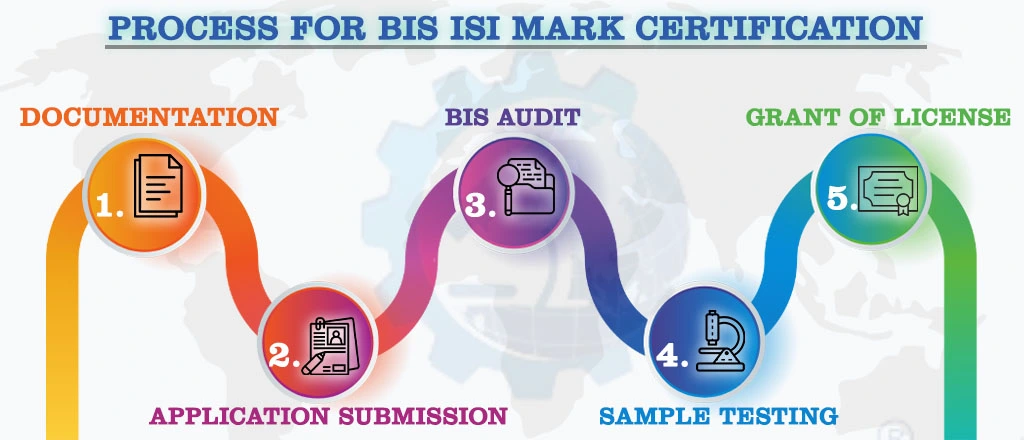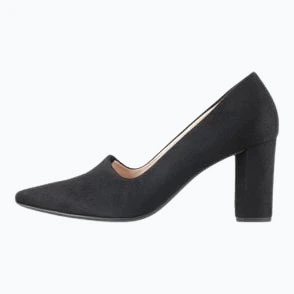BIS CERTIFICATION FOR MOULDED SOLID RUBBER SOLES AND HEELS
IS 5676:1995
In this competitive scenario, it isn't easy to survive in the market without a standard quality and certified product. BIS license may also be required to sell products in the Indian market.
To get BIS certification and produce a
standard quality product, the manufacturer must ensure that their
product must follow the specified Indian standard.
Let's take a closer look at IS 5676:1995 for moulded rubber soles and heels.
Moulded solid rubber soles and heels are covered under IS 5676:1995. This standard specifies the requirements and the sampling and testing methods for rubber full soles with or without heels and heels sold as finished products.
Moulded solid rubber soles and heels are used to make boots/shoes for heavy-duty purposes with leather or rubber uppers. The soles have been classified based on their intended use with various types of footwear.
Moulded solid rubber soles and heels shall be of the following two types:
- Type 1 - For use with leather shoes
- Type 2 - For use with rubber or rubber combination shoes
Moulded solid rubber soles and heels shall comply with the design, materials, manufacture, finish, and performance requirements specified in IS 5676:1995.
The solid rubber soles must be moulded or vulcanised. The finished rubber must be homogenous and free of cracks, pores, and excessive surface marking caused by dirty moulds and sulphur blooms. The surface must be free of blemishes and flaws. The cured spew and moulding flashes must be trimmed as neatly as possible. The rubber soles and heels must be anti-slip. The material shall comply with the physical requirements of the standard. The size, thickness, channel shall be as agreed to between the purchaser and the supplier.
Tests
The following major test for moulded solid rubber soles and heels shall be carried out.
- Thickness Test
- Channel Test
- Tensile strength Tes
- Elongation at break and some other test as specified in the standard.
A laboratory shall be maintained, in which the various tests shall be carried out as per the methods defined in the standard.
Each sole and heel shall be marked with information as specified in IS 5676:1995. The product may also be marked with the ISI standard mark (ISI Mark), and packaging and marking must be done in accordance with the standards. The Manufacturer must obtain a BIS license from the Bureau of Indian Standards to use a standard mark (ISI Mark). The BIS grants a license based on a successful assessment of manufacturing infrastructure, quality control and testing capabilities, and production process.

NOTE:
For Detailed Information about the Procedure for BIS ISI Certification
Visit :
ISI Mark Certification for Domestic ManufacturersISI Mark Certification for Foreign Manufacturers
Conclusion:
If a product falls under the scope of the BIS Conformity Assessment Scheme, All the manufacturers, importers, and foreign entities must obtain BIS ISI Certification. The Bureau may cancel the License if the product fails to meet certification requirements.
Aleph INDIA has been serving the industry as a single-window operator for all product regulatory compliance. We can assist importers or manufacturers in meeting all criteria for importing or selling a product in the Indian market.
International Audits & Participation
Testimonials
BIS REGISTRATION FOR ELECTRONIC & IT PRODUCT
In the era of globalization, world trade is growing rapidly and henceforth, Manufacturing and Import/Export businesses are also growing drastically...View More
BIS CERTIFICATE FOR FOREIGN MANUFACTURER
The Economy of India-the fastest developing economy on the globe with the capabilities that help it matches up with the biggest international...View More
PRODUCT CERTIFICATION SCHEME (ISI MARK) FOR DOMESTIC MANUFACTURERS
Anything a person buys from food to cars, clothes to electronics, branded to unnamed products there is always a question that wanders in one’s...View More
WIRELESS PLANNING AND COORDINATION (WPC)
WPC: Wireless means communication done from one point to another point without the wires and cables. Electromagnetic waves carry the ...View More
BUREAU OF ENERGY EFFICIENCY (BEE) CERTIFICATE
BEE CERTIFICATE: Energy is the future, and its conservation is the way of the bright future. Everyone claims the environment is important...View More
E-WASTE MANAGEMENT
E-waste is one of the world's fastest-growing trash streams. We currently manufacture almost 50 million tones of it each year...View More
Request a call back.
Would you like to speak to one of our Senior Technical advisers over the phone? Just submit your details and we’ll be in touch shortly. You can also email us if you would prefer.
BIS REGISTRATION FOR ELECTRONIC & IT PRODUCT
In the era of globalization, world trade is growing rapidly and henceforth, Manufacturing and Import/Export businesses are also growing drastically...View More
BIS CERTIFICATE FOR FOREIGN MANUFACTURER
The Economy of India-the fastest developing economy on the globe with the capabilities that help it matches up with the biggest international...View More
PRODUCT CERTIFICATION SCHEME (ISI MARK) FOR DOMESTIC MANUFACTURERS
Anything a person buys from food to cars, clothes to electronics, branded to unnamed products there is always a question that wanders in one’s...View More
WIRELESS PLANNING AND COORDINATION (WPC)
WPC: Wireless means communication done from one point to another point without the wires and cables. Electromagnetic waves carry the ...View More
BUREAU OF ENERGY EFFICIENCY (BEE) CERTIFICATE
BEE CERTIFICATE: Energy is the future, and its conservation is the way of the bright future. Everyone claims the environment is important...View More
E-WASTE MANAGEMENT
E-waste is one of the world's fastest-growing trash streams. We currently manufacture almost 50 million tones of it each year...View More
View All Services
Request a call back.
Would you like to speak to one of our Senior Technical advisers over the phone? Just submit your details and we’ll be in touch shortly. You can also email us if you would prefer.






























